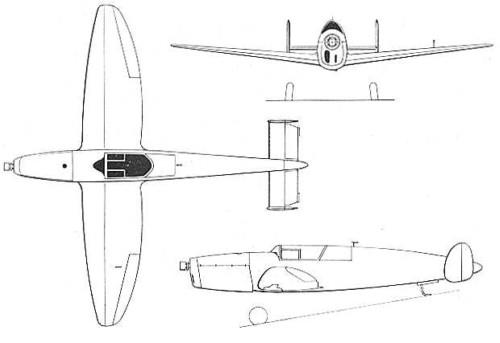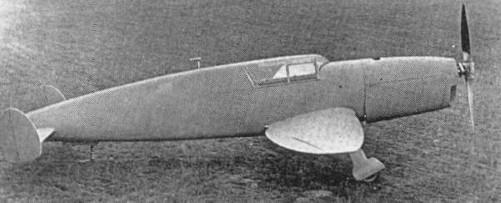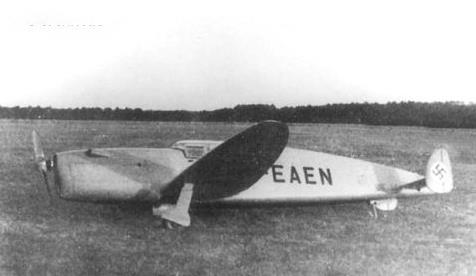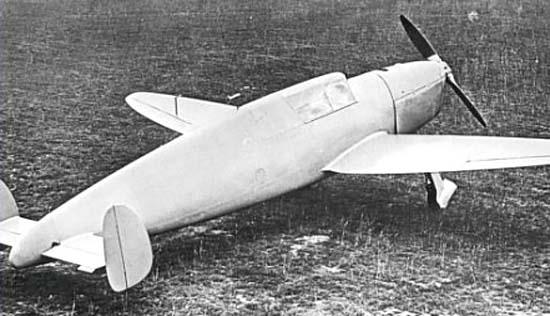Simultaneously, Fieseler proposed a piloted version of the Fi 157, the Fi 158, which could be used for experiments in remote radio control. Three prototypes of the Fi 157 were tested but all crashed. Nevertheless, the company persisted with development of the piloted Fi 158, and this appeared in 1938, differing from the pilotless drone primarily in having a single-seat cockpit enclosed by a hinged canopy, and a fully-retractable undercarriage.
The Fi 158 V1 was entirely of wooden construction and was powered by a 160 hp Hirth HM 506A six-cylinder air-cooled engine driving a two-blade variable-pitch metal airscrew.
| Type |
Single seat experimental testing remote radio control |
| Engine |
1 Hirth HM 506A |
| Dimensions |
Length 6,60 m, height 1,70 m, wingspan 7,00 m, wing area 17,0 m2 |
| Weights |
Empty 494 kg, loaded 646 kg , max. take off weight |
| Performance |
Max. speed 350 km/h, cruising speed 300 km/h, range 370 km, climb 498 m/min., service ceiling 6700 m |
| Type |
Werk.Nr |
Registration |
History |
| SV-1 |
101 |
D-EAEN, KD+NY |
Tested at the E-Stelle Karl Hagen (Peenemünde). From there it, first still painted with registration KD+NY of the E-Stelle, came into the aviation collection at the Lehrter station into Berlin, where it probably was destroyed by bombing |
|
|
|
Cancelled |
|
|
|
Cancelled |



